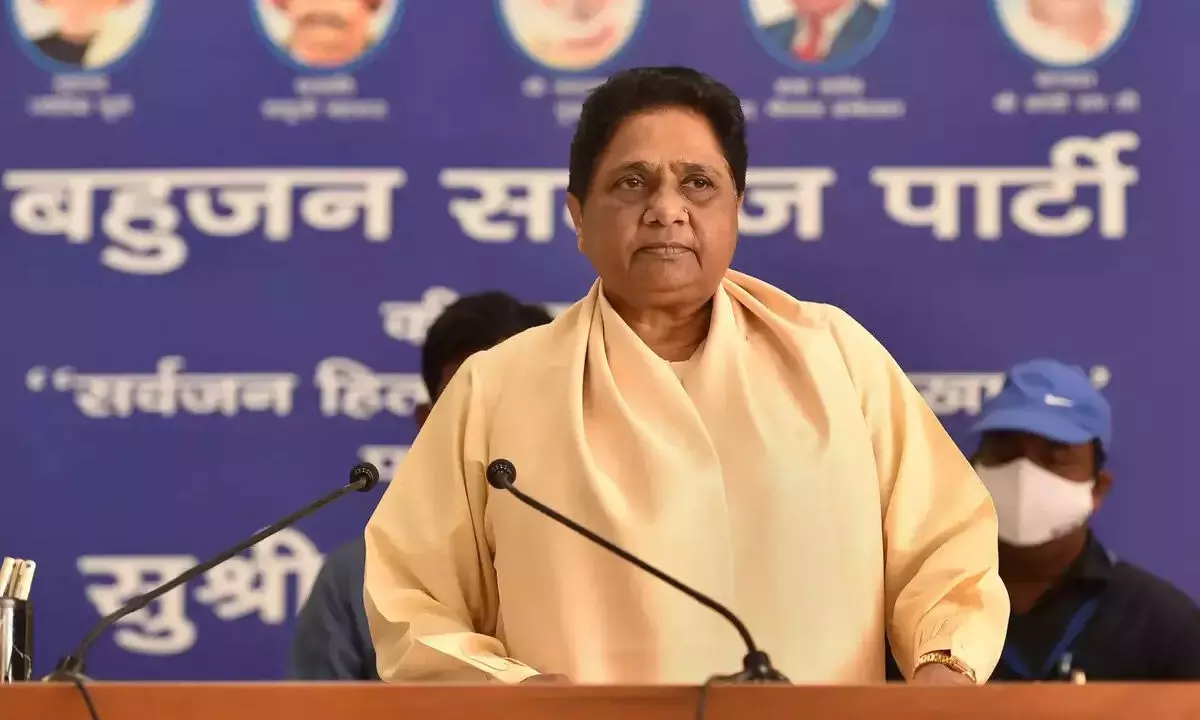The North-South divide in dynastic politics

Bahujan Samaj Party (BSP) has been in the news, of late, for a variety of reasons. Its suspension of one of its MPs, Danish Ali, for ‘anti-party’ activities was the first one for which it gained public attention.
Bahujan Samaj Party (BSP) has been in the news, of late, for a variety of reasons. Its suspension of one of its MPs, Danish Ali, for ‘anti-party’ activities was the first one for which it gained public attention. Coming soon after the exuberant Mohua Moitra was suspended from Parliament in which Ali was seen defying the party line of non-confrontation with the Centre, it ended up being a trending topic for a while, given that the Muslim MP was earlier subjected to vile, abuse and character assassination of sorts by a BJP MP, who has since apologised for his outburst.
One of the eye-catching news items on Monday was the succession plan unveiled by Mayawati, the 67-year-old leader of Bahujan Samaj Party, who has been at the helm of affairs of the party of the downtrodden for nearly a quarter century, since 2001. It was not much of a surprise for the pundits of cow-belt politics to read that she has anointed her nephew Akash Anand as her successor, after effectively handing over the running of the party, a few years ago, to his father, who has been the de facto boss behind the throne.
A very momentous transition, in many ways, for this party, which ruled Uttar Pradesh in the last three decades and has a resonance in many parts of the country as a national party with state units still vying for the attention of Mayawati. The successor has already been endorsed for being a good understudy to his aunt and having learnt the ropes by hitting the field running, staging public interactions and proving that he is tough enough for the long haul.
As 2024 approaches, it would be worth its while to watch how this Dalit outfit plans its outreach and attempts to capture the erstwhile support base of Brahmin and Jatav communities in Uttar Pradesh. BSP has very clearly lost a major chunk of its core support over the past decade and its alliances with fellow competitors like Samajwadi Party have left it badly bruised. Viewed from the context of having to surmount a mountain of challenges, Mayawati may have selected the prudent method to divest herself of the excruciating responsibilities of netagiri.
Here, it is relevant to contrast this passing of the baton exercise to that of another state, Tamil Nadu, where a similar exercise is yet to be formally completed. This is, in a way, a classic case study of how North-South politics differs in undertaking a routine exercise in Indian politics, riddled with nepotism for decades. It was always a seamless transition of power from the father to the son or the father to the daughter, beginning with Jawahar Lal Nehru and a host of leaders like Devi Lal, Sheikh Abdullah, Laloo Prasad Yadav to quote a few. No rebellion worth its name surfaced and if there were any questions raised, that would be the end of that aspirant’s political career in the area he/she operated.
South India has also seen entitled politics heirs receiving the mantle on a platter. Palace politics also is not unknown in this part of the country, where the legitimate heir enters into fratricidal warfare for his/her share of the pie. In DMK-ruled Chennai, none disputes the fact that Udayanidhi is already just within a foot away from the seat of power, currently occupied by his father, M K Stalin, who got the coveted spot after decades of waiting and serving his party and parent, M Karunanidhi. Yet, other than subterfuges and circuitous references to the man-in-waiting as the ‘future Dravidian model of governance’, no official announcement has been made yet.
It may be argued that the time is still not ripe or opportune and that Stalin is creating a favourable ambience for his ambitious son to finally grab the chair. The whispers are also circulating in the corridors of power that the Dravidian behemoth may split if an unilateral announcement is made about the successor to Stalin, as the seniors of the 70+ year old party may at present be quiet, seemingly subservient but may not remain so always.
On the other hand, Mayawati, with her bulldozing attitude has taken a decision to hand over her 40-year old party to the young gen and clearly enjoy the backseat view, as she may be seeing the end of the road for her political career too. Stalin, at around 70, may be harbouring a bigger dream for which he may have to move out of Chennai and what better than testing the waters before the 2024 Lok Sabha polls which seem tougher than what it seems, with a resurgent BJP moving into pan-India mode of propaganda and publicity of its achievements. That nothing is permanent in politics, one knows well by now.








